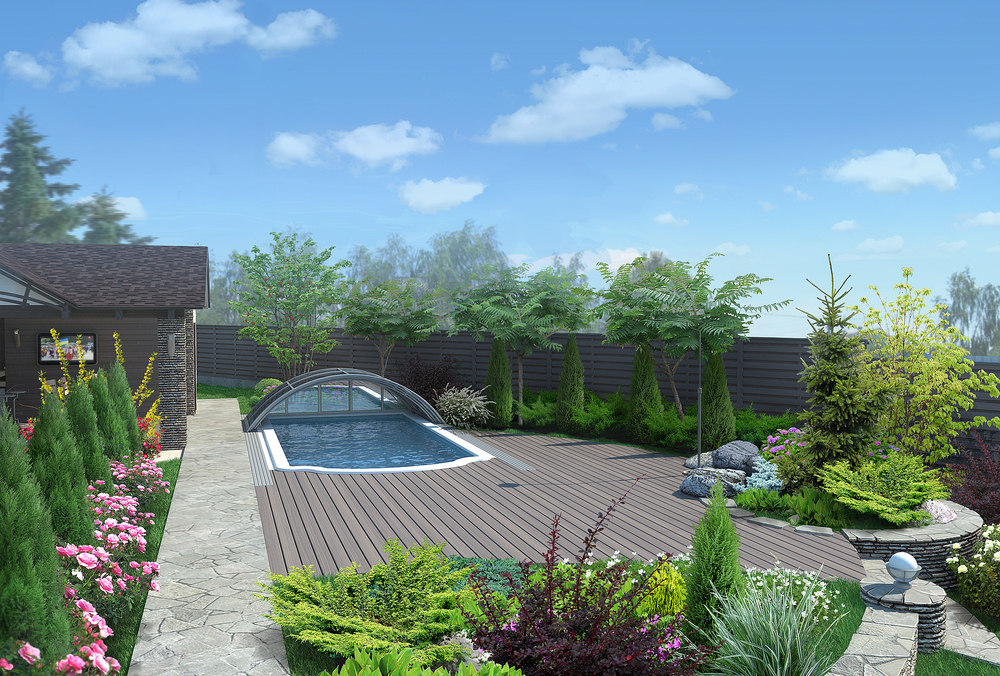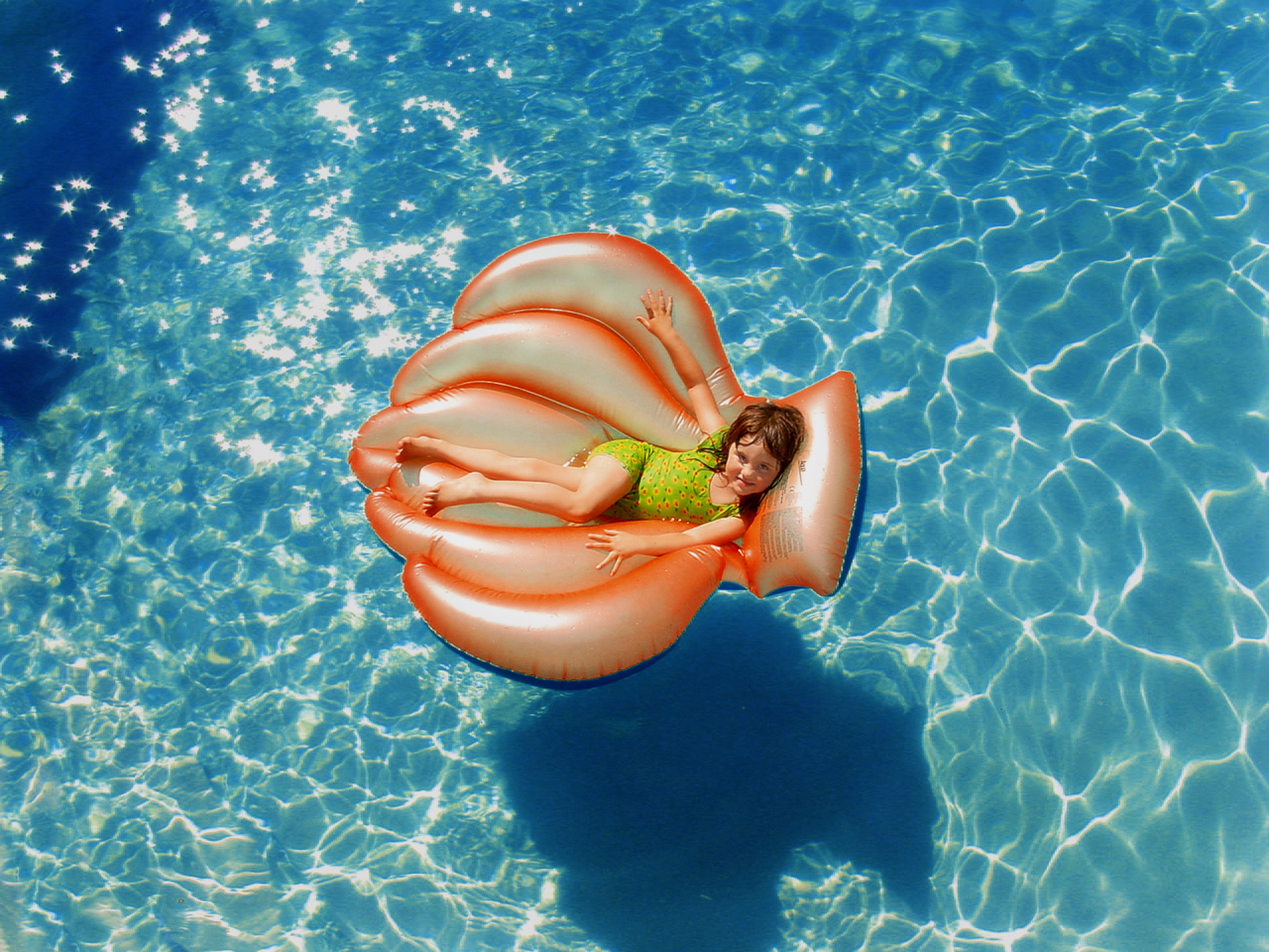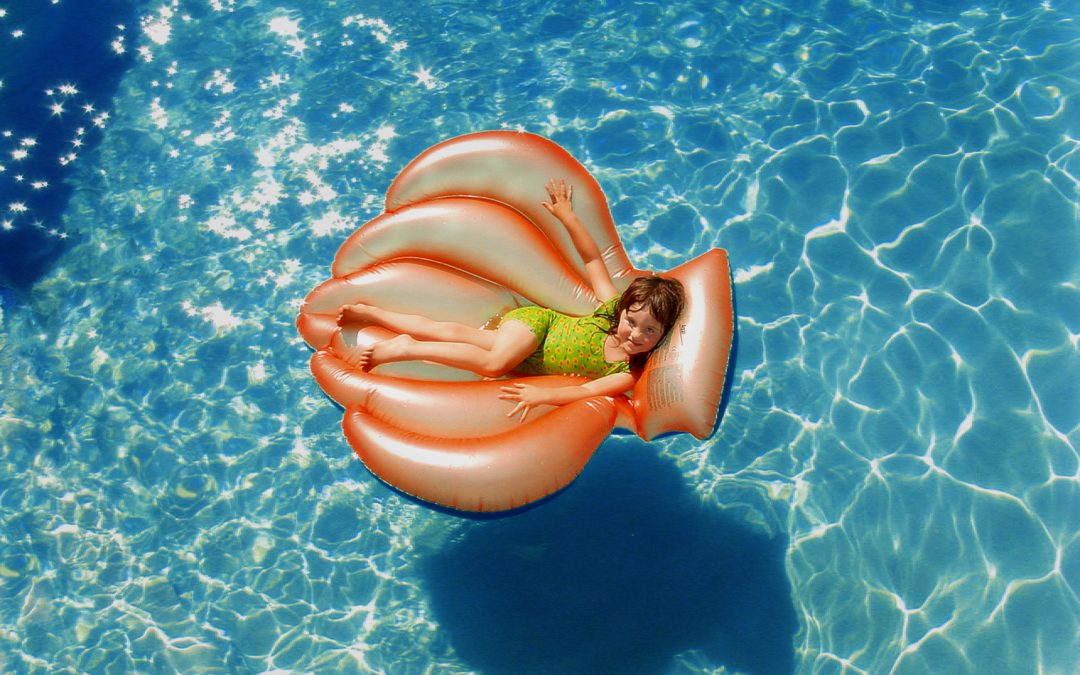If you have been a swimming pool owner for any length of time you have probably realized that a swimming pool cover is more of a necessity and less of an accessory. The reason for this is that a swimming pool cover performs many duties based on the type of pool cover in which you invest.
You thought pool covers didn’t do much? Think again! If you have a swimming pool and don’t have a pool cover it’s like living in a home without a roof! Yes, it’s that important to your pool’s health and well-being.
We want to cover all you need to know about pool covers including:
- The types
- The essentials of covers
- How to care for them
 Everything You Needed To Know About Pool Covers But Didn’t Know To Ask!
Everything You Needed To Know About Pool Covers But Didn’t Know To Ask!
- Pool cleaning is easier and might cost you less money. What?! Yes! If you use a pool cover regularly, your pool water will stay cleaner because dirt and debris won’t be able to get in. If you use a pool cover the water may not evaporate as quickly and you won’t have to refill the pool as often. If you use a pool cover, the chemicals won’t evaporate as quickly and your pool contractor may need to use fewer chemicals.
- It won’t take as long to clean the pool and that, wait for it, could save you money! If dirt and debris aren’t floating around your pool or sinking to the bottom of the pool, it will take your pool contractor a shorter time to clean the pool and that may mean lower pool service and maintenance bills.
- If you heat the pool, using a pool cover will trap the heated water rather than allowing it to evaporate into the air over the wide surface of the pool. If you have a cover on, turn on the heater for the water, it may heat up more quickly. As a result, you’re able to lower your heating expenses by as much as 50%.
- When winter falls, using a pool cover will protect it from the ravages of winter. Winter and pools go together like oil and water — they just don’t mix. Cover the pool to protect it from damage from freezing temperatures, sleet and snow.
- The US Center Disease Control and Prevention, cites drowning is the second leading cause of death among children under the age of fifteen; 80% of these accidents happen in residential swimming pools and spas. If you have children in the house look for a cover that can hold at least 485 pounds per 5 square feet. This cover could easily support a child if he or she runs across the pool. (although you should have a locked pool fence, but we know accidents happen.
Various pool cover types and benefits
Since you’ve made it this far and know the benefits of buying a swimming pool cover, you now need to know what type to get for your unique pool, right?
There are four kinds of covers:
- Solar
- Thermal
- Automatic
- Winter
- Safety
Each has a unique use and each has advantages and disadvantages.
 Automatic
Automatic
An automatic pool cover is more a method of working than it is an actual pool cover style. With an automatic pool cover your pool contractor will install runners along the pool gutters on which the pool will rest and at the touch of a button the cover opens and closes.
They are convenient — advantage.
The tracks are in the gutter and if you’re not paying attention you could trip – disadvantage.
Solar
These covers absorb the heat from the sun and heat the water below. The cover “stores” heat in its bubbles and will keep the water warm well after the sun has gone down.
They are inexpensive – advantage.
They fit any size or shape pool – advantage.
They amp up the effectiveness of any pool water heating method you use – advantage.
They are hard to get into and out of the water because they are heavy, BUT they are lightweight enough to get blown away if there is a storm – disadvantage.
They will not support the weight of a child so there is NO safety aspect – disadvantage.
Thermal
Made from a lightweight foam material, this cover type regulates the pool water temperature.
It can keep dirt and debris from the water – advantage.
It can block the heat of the sun from warming up the pool water – disadvantage.
They are economical and can fit any pool size and shape – advantage.
You will need to work with a pool professional to have him install the cover – disadvantage as it may cost you more money to have this done.
Winter
As the name indicates, a winter cover is put on when you close your pool for the season. They are inexpensive – advantage. A winter cover can be used year round – advantage.
They are extremely safe – advantage. A winter cover is stretched to completely cover your pool and are tied down around the edges of the pool to form a tight seal to keep winter weather, snow and standing water out of the pool this helps provide a protective barrier to keep children or wildlife from falling in – advantage.
If you use it year round it can take a long time to get on and take off – disadvantage and that makes it inconvenient enough that many people stop using them.
Safety
These covers, as their name indicates, are used for safety — to keep children and small pets from falling into the water. When used in conjunction with a locking pool fence a safety cover adds an additional layer of protection.
They keep your family safer – advantage.
They can be expensive – disadvantage.
They can be used with automatic pool removers – advantage.
Protect your pool cover investment
- You need to clean the underside of the pool cover in order to keep algae or bacteria from growing. Also, the water and chemicals can damage and destroy the pool cover. Buy pool cover cleaner and clean the pool cover regularly.
- Remove visible dirt and debris from the cover before you remove it from the pool — if you don’t, all of that dirt will fall into the pool water.
- In the winter you will need to pump off standing water on those days when the snow and ice thaw. Invest in a pool water pump to make the job easier.
- Store the cover in a safe place when you’re swimming so it doesn’t get ripped or torn. Don’t just crumple it up and place it poolside.
The best way to reap the benefits of a pool cover is to be diligent in its use!

